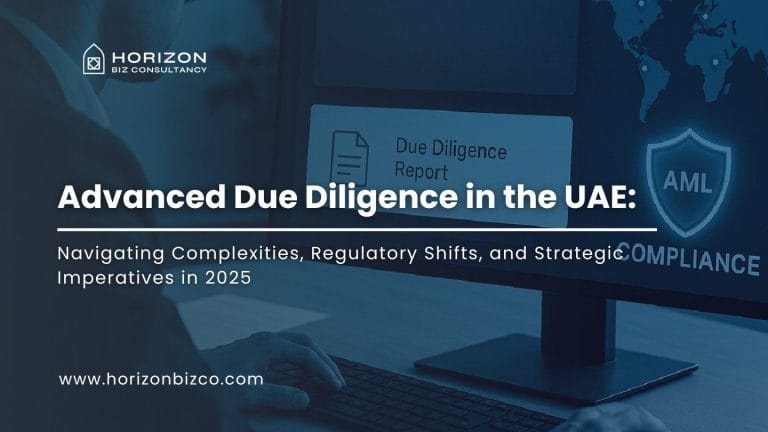Navigating Complexities, Regulatory Shifts, and Strategic Imperatives in 2025
1. The Regulatory Landscape: Beyond the Surface
A. FATF Alignment and Local Enforcement
The UAE’s inclusion on the FATF “grey list” in 2022 was a watershed moment, triggering a sweeping overhaul of AML/CFT frameworks. Since then, the Central Bank and the Ministry of Economy have intensified enforcement, with a focus on:
- Real-Time Monitoring: Financial institutions and DNFBPs (Designated Non-Financial Businesses and Professions) are now required to implement continuous transaction monitoring, not just periodic reviews.
- Beneficial Ownership Registers: The UAE mandates Ultimate Beneficial Owner (UBO) disclosure for all legal entities, with severe penalties for non-compliance. The Ministry of Economy’s UBO audits are now routine, and discrepancies can result in business license suspension.
- Cross-Border Data Sharing: UAE regulators actively cooperate with international authorities, sharing due diligence findings and suspicious transaction reports (STRs) through Egmont Group protocols.
B. Sector-Specific Due Diligence
- Free Zones vs. Mainland: Due diligence requirements differ sharply between DIFC/ADGM (which follow English common law and have their own regulators) and mainland jurisdictions. For instance, DIFC entities must comply with DFSA’s stringent AML Rulebook, which often exceeds federal standards.
- Virtual Assets: With the introduction of VARA (Virtual Asset Regulatory Authority), due diligence for crypto-related businesses now includes source-of-funds tracing, wallet screening, and enhanced scrutiny of cross-border digital asset flows.
2. Risk-Based Due Diligence: The UAE Model
A. Dynamic Risk Scoring
UAE institutions are adopting AI-driven risk scoring models that integrate:
- Geopolitical Risk: Screening clients and counterparties against real-time sanctions lists (UN, OFAC, EU) and monitoring for exposure to high-risk jurisdictions (e.g., sanctioned countries or those with weak AML controls).
- Behavioural Analytics: Leveraging machine learning to detect anomalous transaction patterns, layering, and structuring indicative of money laundering or tax evasion.
- PEP and SOE Screening: Enhanced due diligence for Politically Exposed Persons (PEPs) and State-Owned Enterprises (SOEs), including source-of-wealth verification and ongoing media monitoring.
B. Continuous Monitoring and Adaptive Triggers
- Event-Driven Reviews: Any material change, such as a change in ownership, directorship, or business activity, automatically triggers a full due diligence refresh.
- Transaction Thresholds: Automated alerts for transactions exceeding regulatory thresholds (e.g., AED 55,000 cash, or frequent cross-border transfers) prompt deeper investigation.
3. M&A and Corporate Transactions: Deep-Dive Due Diligence
A. Multi-Layered Investigations
- Legal Chain-of-Title: Scrutinising historical ownership transfers, encumbrances, and potential litigation risks, especially in real estate and family-owned conglomerates.
- Financial Forensics: Beyond standard audits, forensic accounting is now standard in high-value deals, including revenue recognition analysis, off-balance-sheet liabilities, and related-party transactions.
- Reputation and ESG Audits: Investigating environmental, social, and governance (ESG) risks, including supply chain labour practices, sustainability disclosures, and alignment with the UAE’s Net Zero 2050 agenda.
B. Cross-Border Complexity
- Sanctions Evasion: Particular focus on entities with links to high-risk jurisdictions (e.g., Iran, North Korea, Russia), using advanced network analysis to uncover indirect ownership or control.
- Tax Substance and Economic Presence: Post-UAE Corporate Tax Law, due diligence now includes verification of genuine economic substance, especially for holding companies and IP-box structures.
4. Technology and Data in UAE Due Diligence
A. RegTech Adoption
- Automated KYC/AML Platforms: Integration of AI-powered platforms (e.g., Refinitiv World-Check, ComplyAdvantage) for instant screening and ongoing monitoring.
- Blockchain for Provenance: Use of distributed ledger technology to verify asset provenance, particularly in luxury goods, art, and high-value commodities.
B. Data Privacy and Cross-Border Transfers
- PDPL Compliance: The UAE’s Personal Data Protection Law (PDPL) restricts cross-border data transfers, requiring explicit consent and adequacy assessments critical when conducting multi-jurisdictional due diligence.
5. Strategic Best Practices for 2025 and Beyond
- Integrate Legal, Financial, and Reputational Diligence: Siloed due diligence is obsolete. Leading firms now deploy multidisciplinary teams of lawyers, forensic accountants, compliance officers, and ESG experts to deliver holistic risk assessments.
- Scenario Planning: Stress-test business models against regulatory shocks, geopolitical events, and ESG controversies.
- Stakeholder Engagement: Proactively engage with regulators, local partners, and community stakeholders to anticipate regulatory changes and social risks.
- Ethical and Sustainable Due Diligence: Go beyond compliance, embed sustainability, human rights, and anti-corruption checks into every transaction.
Conclusion
In the UAE’s high-velocity business environment, due diligence is a strategic lever for value creation, risk mitigation, and long-term credibility. As regulatory expectations rise and technology transforms compliance, only those who embrace advanced, adaptive, and holistic due diligence will thrive.
Looking to elevate your due diligence process in the UAE? Horizon Biz Consultancy delivers tailored, technology-driven solutions for complex transactions and cross-border ventures. Contact us for a confidential consultation.
FAQ’s
In 2025, UAE regulations mandate enhanced UBO disclosure, real-time AML/CFT monitoring, and sector-specific rules, especially in DIFC, ADGM, and virtual asset-related businesses. Compliance has shifted from static checks to ongoing surveillance.
DIFC and ADGM follow English common law and have independent regulators (DFSA & FSRA), requiring stricter AML, KYC, and ESG protocols than mainland jurisdictions, which follow UAE federal laws.
Key steps include legal chain-of-title checks, financial forensic audits, ESG compliance, and sanctions screening. Post-Corporate Tax law, validating economic substance is also critical for holding structures.
AI-powered RegTech tools now automate KYC/AML, conduct real-time transaction monitoring, and use blockchain for asset provenance. These systems enhance speed, accuracy, and regulatory alignment.
Risk-based due diligence involves tailoring the depth of checks based on a client’s risk profile. In the UAE, this is vital to meet FATF standards, mitigate cross-border risks, and ensure compliance in high-risk sectors like crypto, finance, and international trade.





